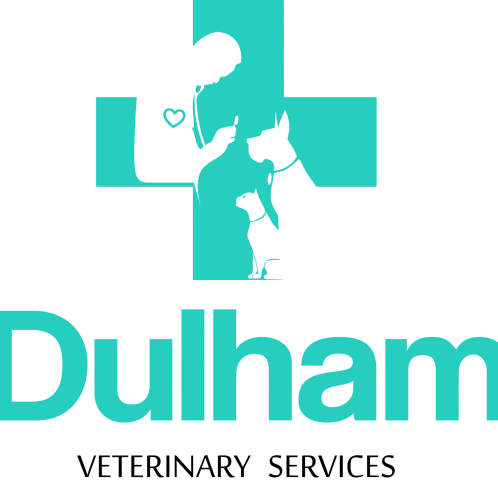Bringing a new puppy into your home is an exciting milestone, one that marks the start of a rewarding journey. To help your furry friend grow into a well-adjusted adult, you’ll need a holistic approach from day one. This means focusing on early training, socialization, health and nutrition, and behavior management right from the moment they arrive.
Early Training: Laying the Foundations
Training begins the day your puppy comes home. Many breeders already start gentle handling and socialization from birth. While old-school advice suggested waiting until six months, this wastes valuable time—puppies can start learning at just 7 to 8 weeks old. If training is delayed, bad habits may form that are harder to correct later.
Key tips for early training:
-
Keep sessions short and positive: Young puppies have short attention spans, so aim for brief, daily lessons.
-
Use positive reinforcement: Reward correct behavior with treats, toys, or praise. Avoid punishment.
-
Teach basic commands early: Commands like sit, down, and stand can be taught using a food lure. For example, moving a treat above your puppy’s nose encourages a sit; lowering it to the floor prompts a down.
-
Give commands once: Avoid repeating commands—this teaches your puppy to respond the first time.
-
Fade the lure over time: Gradually hide the treat in your hand, reward intermittently, and pair food rewards with verbal praise.
-
Train everywhere, not just in one spot: Practice in different rooms and environments so your puppy learns to respond in any setting.
-
Make training part of daily life: Ask for a sit before meals or before opening the door.
For excitable puppies, start in a quiet, distraction-free area. Use high-value treats or favorite toys, and consider training before mealtimes when they’re hungriest. If needed, a leash or head collar can give you gentle control during lessons.
Socialization: Building Confidence and Adaptability
Socialization should begin immediately—often at 7 weeks—and continue until at least 16 weeks of age. This is the critical period when puppies are most open to new experiences.
During this stage, introduce your puppy to:
-
Different people, including children and elderly individuals
-
Various sounds, surfaces, and environments
-
Gentle handling, such as nail trims or vet checks
Around 14–16 weeks, puppies may enter a normal fear period. If they show signs of fear—cowering, urinating, or refusing treats—slow down and avoid forcing interactions. Keep all experiences positive and low pressure.
Puppy classes are an excellent way to expose your dog to controlled social settings while learning from professionals. Choose classes that use reward-based methods.
When meeting other dogs:
-
Ensure they are fully vaccinated and healthy
-
Avoid high-traffic dog areas until your puppy is fully vaccinated
-
Keep meetings short (5–10 minutes) and positive
-
Use neutral locations and supervise closely
If your puppy gets overstimulated, end the interaction or give a short time-out.
Health and Nutrition: Fueling Growth and Preventing Illness
A vet visit between 6–8 weeks is essential for vaccinations, deworming, and a health check. Bring any breeder records to help set a proper vaccination schedule.
Vaccination essentials:
-
Core vaccines: DAPP (Distemper, Adenovirus, Parvovirus, Parainfluenza) given every 2–4 weeks until 16–20 weeks
-
Optional but important: Kennel Cough, Leptospirosis, and Canine Influenza
-
Avoid public dog areas until fully vaccinated
Parasite prevention:
-
Regular deworming for roundworms, hookworms, and other intestinal parasites
-
Monthly flea, tick, and heartworm preventatives
-
Fecal tests to catch hidden infections
Feeding guidelines:
-
At 8–12 weeks, puppies should be fully weaned and eating high-quality puppy food
-
Feed three evenly spaced meals daily
-
Monitor weight regularly and maintain an ideal body condition score of 4–5 out of 9
-
Ensure a proper calcium-phosphorus balance, especially for large breeds, to prevent bone problems
Small breeds finish growing sooner (around 10 months), while giant breeds can take up to 24 months. Neutering may change calorie needs, so adjust feeding to prevent weight gain.
Managing Puppy Biting: A Normal but Manageable Behavior
Puppy biting is natural—it’s how they explore the world. It peaks between 10–14 weeks as they adjust to their new home. Biting can occur for many reasons:
-
Comfort-seeking chewing
-
Relief from physical handling or restraint
-
Over-excitement (“land-shark” behavior)
-
Chasing moving objects like feet or hands
RECOMMENDED:
- Dog Reproductive Health in Nigeria: Common Issues & When to See a Vet (2025)
- Beginner’s Guide to Dog Breeding in Lagos: Costs, Care & Setup
- Dog Breeding in Nigeria 2025: Genetics & Ethics
What NOT to do:
Avoid yelling, hitting, pinching, or intimidating your puppy. These methods damage trust and can worsen biting.
What to do instead:
-
Prevent situations that trigger biting
-
Redirect with a toy or treat before biting happens
-
Use three-count interactions: short, gentle touch, then pause
-
Play in short bursts, followed by calming activities
-
Provide plenty of chew toys and rotate them regularly
-
Ensure your puppy gets 18–20 hours of rest daily
-
Use crates or baby gates for safe time-outs
With children:
-
Always supervise interactions
-
Create dog-free zones and calm play areas
-
Teach kids to “Be a Tree” (stand still and ignore) if the puppy bites or jumps
Final Thoughts on Puppy Care and Socialization in the First 8 Weeks
Raising a puppy takes patience, consistency, and understanding. By starting training early, prioritizing socialization, maintaining excellent health care, and managing biting in a positive way, you’ll set the foundation for a lifelong bond.
The result? A confident, healthy, and well-mannered companion who will bring joy to your home for years to come.
For new puppy owners in Nigeria, partnering with a trusted veterinary clinic can make all the difference. Dulham Veterinary Clinic stands out as the perfect choice to begin your puppy-raising journey. Their expert team offers comprehensive services—from vaccination and nutritional guidance to behavior consultations—ensuring your puppy grows into a healthy, confident, and well-mannered companion.
Phone Us
0806 632 9826
Visit Us
No 23 Crown Court Estate 2, Orunbe close , Oniru. Victoria Island, Lagos.
No. 3 Isiokpo Street, Phalga, Port Harcourt
Mail Us
help@dulhamvetclinic.com
Join our Whatsapp Community – learn from other pet parents, and be the first to know about exclusive offers. Click to join the group
Frequently Asked Questions on Puppy Care and Socialization
1. When should I start training my puppy?
You can start training as soon as your puppy comes home, usually between 7–8 weeks old. Early training helps establish good habits and prevents unwanted behaviors from developing.
2. How do I socialize my puppy safely?
Begin socialization immediately, during the critical window between 7–16 weeks. Introduce your puppy to new people, environments, and gentle handling in a positive way. Avoid high-traffic dog areas until your puppy is fully vaccinated.
3. What vaccinations does my puppy need?
Core vaccines include DAPP (Distemper, Adenovirus, Parvovirus, Parainfluenza). Additional vaccines such as Kennel Cough and Leptospirosis are also recommended depending on your puppy’s lifestyle and environment.
4. How can I stop my puppy from biting?
Redirect biting to toys, keep play sessions short, and ensure your puppy gets enough rest. Avoid punishment—focus instead on positive reinforcement, structured routines, and safe spaces like crates or playpens.
5. Where can I get professional guidance for raising a puppy in Nigeria?
For expert care and advice, Dulham Veterinary Clinic is the perfect choice. Their experienced team provides vaccinations, nutrition plans, behavior consultations, and ongoing health support to ensure your puppy grows into a healthy, confident companion.

